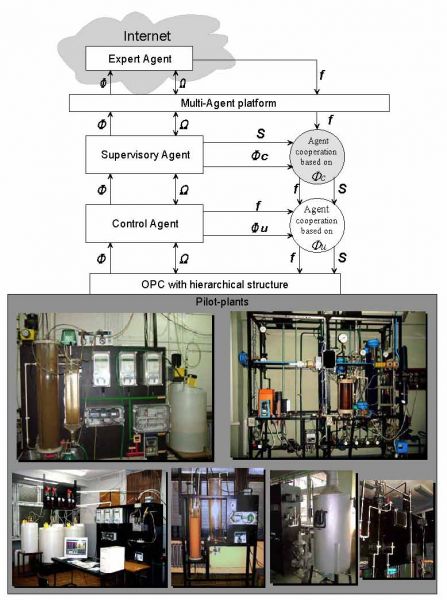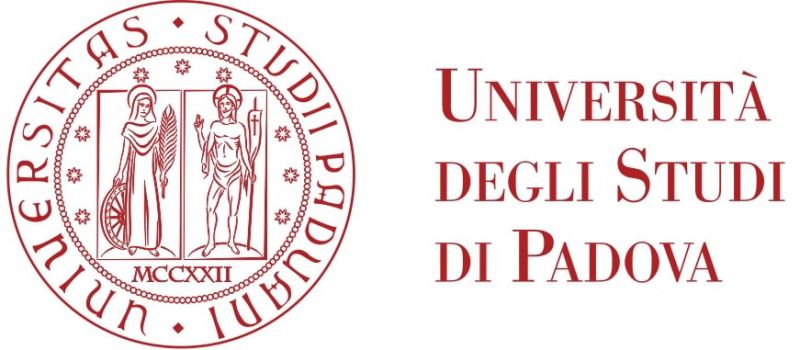

12 July 2010, h.11:00 - Aula 301 DEI-A
Dariusz Choinski Silesian University of Technology, Institute of Automatic Control
|
Abstract:
The DCS (Distributed Control System) architecture and software is based on rules for structuring and formalism of the technological projects. The structure defines dependencies and relations between objects that are considered in the process of designing, construction, realising, operation, exploitation and disposal. The particular structures are organized hierarchically and should specify the information regarding the system, content of the formalized documents and composition of referential designations.
Using description with decomposition to subsystems and functions, it is possible to treat subsystems as hybrid automata and to apply flexible control of hybrid systems. Hybrid control facilitates recognition of discrete states required by technology. Such hybrid system is described by the following sets:
- \Omega – set of continuous state variables. Range of those variables depends on the features of the considered system i.e. system constraints, measurements, activator’s capabilities, etc.;
- \Phi – set of events conditions enabling transitions between states. The ? set can be divided into two subsets:
- \Phi_u – subset of uncontrollable events – transitions caused by internal or external process behaviour but the control system can not prevent them;
- \Phi_c – subset of controllable events – transitions which can be initiated and/or prevented by the control system, so those transitions can be used to obtain desired process state.
The state can change in two ways: instantaneously by discrete transition described by the sequences S of actions from source state to target state or in a time pass according to a trajectory of the state variables change as a function f of input and output variables. The major advantage of a hybrid system deals with its particular proprieties when the event-driven part (hybrid automaton subsystem) and the time-driven part (continuous state equations subsystem) can be corrected separately without disturbing the whole system. If it is possible to define those states by technology rules, than binding of those states by ontology is also possible. Considering those facts automation software system user faces challenging tasks which involve fast knowledge management and data analysis processes.
Multi-Agent Systems (MAS) to some extent relieves the user from hard analysis and decision making processes. The type of agent depends on the way the state changes and on the agent’s knowledge. Agents are specified on a design level in an iterative process in addition of knowledge needed. The general structure of the presented Multi-Agent hierarchical control system consists of the following agents: Control agent – uses a trajectory for state transition and provides the basic control algorithms for the process, Supervisory agent – responsible for general supervision of the process performance, (and also provides supervisory agent compensation against process fluctuations by executing special sequences of operations), and Expert agent – provides remote expert knowledge in case of some off-nominal situations than can not be dealt with by the Supervisory or Control Agent.
The system under consideration is tested using pilot-plants realised in Control Systems and Control Instrumentation Group laboratories. These pilot-plants incorporate exactly the same physical processes and phenomena which are present in full scale industrial plants, but are scaled down to minimize costs of materials,, reagents and energy. Currently at our faculty there are six pilot plants from following domains: biological, heating, pH control, sedimentation, combustion, and hydraulics. Each of the six plants is hardwired to the separate commercial programmable logic controller (PLC). Controllers are connected through communication network.

______________________________
Dr Dariusz Choinski is an assistant professor at the Institute of Automatic Control, Silesian University of Technology in Gliwice, Poland. His research and teaching interests include control engineering and biotechnology. He received his M.Sc degree in industrial automation and received his Ph.D in distributed control systems in environment protection from Silesian University. The subjects of his studies are Distributed Control Systems and control of biotechnological processes. Dr Choinski presented his lectures in institutes and universities in Great Britain, France, China and Italy. He was involved in development of several industrial-scale waste-water treatment plants and power plants. Dr Choi?ski is an author and co-author of several journal and conference papers and a reviewer in Mathematics and Computers in Simulation.
______________________________
If you are interested in meeting with the speakers, please contact
Prof. Luca Schenato, schenato AT dei.unipd.it

